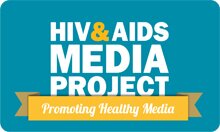2001: PMTCT Programme
In August 2000, the South African health ministry decided that the use of nevirapine for the prevention of mother-to-child transmission (PMTCT) would first be tested for two years at 18 pilot sites — two for every province — around South Africa , "to determine whether or not the exercise would be feasible". (Health MinMEC Minutes cited by Heywood, 2003). The progress of the programme was slow and haphazard, resulting in the Treatment Action Campaign instituting legal proceedings in August 2001.
Quotable Quote
"Our government has ignored science, economics, morality, good planning, good governance and the law for more than five years on this issue. We've organised, marched, presented petitions and government has ignored every decent plea for them to do something. That's why we've taken this step," — Zackie Achmat on why the TAC was taking government to court, August 2001.
The TAC, together with Save Our Babies (SOB) and the Children's Rights Centre (CRC) in Durban filed a case against the government:
- seeking a declaration that their PMTCT policy was unconstitutional,
- asking that the government be ordered to make "nevirapine available to pregnant women with HIV who give birth in the public health sector, and to their babies..."
On 14 December 2001, the Pretoria High Court ordered the government to allow nevirapine to be prescribed to pregnant women in South Africa where "medically indicated" and develop "an effective comprehensive national programme to prevent or reduce MTCT" by March 31, 2002, for further scrutiny by the Court." (see excerpt of judgement).
The government delayed the process with a notice of intention to appeal the matter before the Constitutional Court, effectively freezing the original order. Subsequently, in March 2002, the TAC applied for part of the Pretoria High Court order to be executed. The request was granted. In an SABC interview, Tshabalala-Msimang was asked whether the government would respect the court order.
"No, I think the courts and the judiciary must also listen to the authorities — regulatory authorities — both from this country and the United States," she said. Asked to clarify if she was saying no, Tshabalala-Msimang said: "Yes and no. I'm saying no." During this time, some provincial governments took advantage of the High Court's decision by instituting their own PMTCT programmes.
In February 2002, KwaZulu-Natal Premier Lionel Mtshali — a member of the Inkatha Freedom Party, a rival party to the ANC — announced that the provincial Department of Health would roll out a province-wide MTCT programme and said he had accepted the free donation of nevirapine from Boehringer Ingelheim for five years. In his speech, he questioned the government's AIDS policy:
"As a Premier who heads a legitimate government, I must ask myself, as our posterity will undoubtedly do, what went wrong in South Africa for a judge to have to order us to have a plan and re-prioritise in order to save our children. Certainly, history will judge us harshly for the appealing of this ruling and the many unfounded attacks made on it on the grounds that it threatens to interfere in government policy-making. ... I will not have another 20,000 HIV positive children who could have been saved on my conscience in 2002. (read full speech)
He also attacked Mbeki's AIDS denialism. "HIV causes AIDS. In this province this axiom of science is not open to bizarre personal theories with no relation to reality." Gauteng Premier Mbhazima Shilowa — a member of the ANC — committed his government similarly to a nevirapine PMTCT programme, albeit with a more politically correct statement.
On 5 July 2002, the Constitutional Court upheld the 2001 High Court decision and ordered the government "without delay" to make nevirapine available for the prevention of mother-to-child transmission at public hospitals and clinics.
Also see: Heywood, 2003. ![]() Preventing mother-to-child HIV transmission in South Africa: Background, strategies and outcomes of the Treatment Action Campaign case against the Minister of Health)
Preventing mother-to-child HIV transmission in South Africa: Background, strategies and outcomes of the Treatment Action Campaign case against the Minister of Health)






